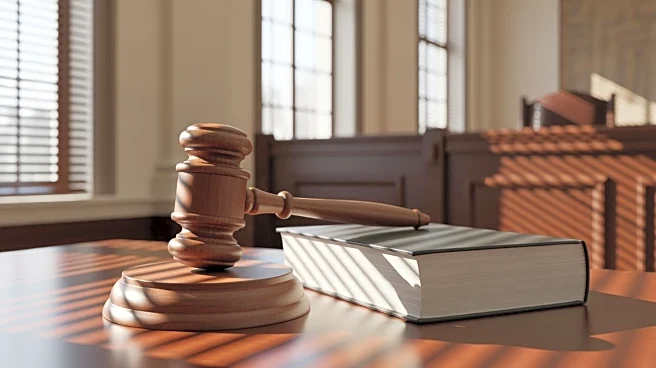What's Happening?
A federal judge in Florida is urging civil rights attorneys and lawyers representing the U.S. and Florida to reach a settlement in a lawsuit concerning detainees' access to legal representation at the Dade-Collier
Training and Transition facility, known as 'Alligator Alcatraz'. The facility, located in the Everglades, has been criticized for its restrictive policies that hinder detainees from meeting with their attorneys. U.S. District Judge Sheri Polster Chappell has scheduled a conference for December 16-17 to facilitate discussions. The lawsuit seeks a preliminary injunction to improve access for detainees to their legal representatives, highlighting issues such as the requirement for attorneys to schedule visits three days in advance and the frequent transfer of detainees to other facilities, which complicates legal consultations.
Why It's Important?
The case underscores significant concerns about the rights of detainees in immigration facilities, particularly regarding access to legal counsel. The outcome of this lawsuit could set a precedent for how similar facilities operate across the U.S., potentially influencing policies on detainee rights and legal access. The facility, built under the administration of Governor Ron DeSantis, has been a focal point in discussions about state versus federal jurisdiction in immigration matters. The resolution of this case could impact the operational authority of state-run detention centers and the role of private contractors in managing such facilities.
What's Next?
The upcoming conference in December aims to bring both parties closer to a resolution. If a settlement is reached, it could lead to changes in how detainees access legal services at 'Alligator Alcatraz' and similar facilities. The case is part of broader legal challenges, including environmental concerns and jurisdictional disputes over immigration enforcement. The federal government's approval to reimburse Florida for the facility's costs indicates ongoing support for its operations, but the legal outcomes could influence future federal and state collaborations in immigration detention.
Beyond the Headlines
The facility has drawn attention from high-profile figures, including President Trump, who suggested it could serve as a model for future detention centers. This highlights the political dimensions of immigration enforcement and the potential expansion of such facilities nationwide. The case also raises ethical questions about the treatment of detainees and the balance between security measures and civil rights. Long-term implications may include shifts in public policy and legal standards governing immigration detention practices.








